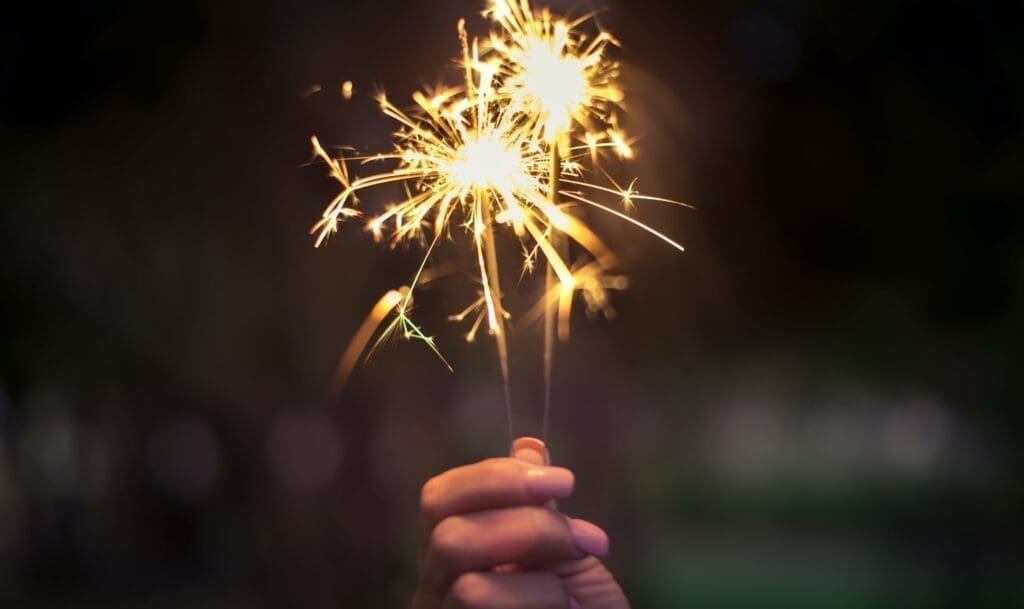Many Wisconsinites celebrate the 4th of July with fireworks. What laws apply to this practice?
Fireworks are used to celebrate many holidays, most prominently the 4th of July. Between large municipal or organizational air displays to small get togethers with sparklers, we’ve all seen some sort of firework display in our lifetimes. The law controls all of those displays. And the purpose of this blog post is to describe those laws.
If you are cited for an offense involving illegal fireworks, or face charges for some sort of crime based on your use of them, contact Van Severen Law Office, S.C. immediately. Our firm focuses all of its resources on defending individuals charged with violating laws throughout Wisconsin. Contact us at (414) 270-0202 to speak with a member of our staff, or to schedule a free initial consultation.
Section 167.10 of the Wisconsin Statutes: Regulation of fireworks
Section 167.10(1) of the Wisconsin Statutes begins and provides us with an important definition:
… In this section, “fireworks” means anything manufactured, processed or packaged for exploding, emitting sparks or combustion which does not have another common use …
(a) Fuel or a lubricant.(b) A firearm cartridge or shotgun shell.(c) A flare used or possessed or sold for use as a signal in an emergency or in the operation of a railway, aircraft, watercraft or motor vehicle.(d) A match, cigarette lighter, stove, furnace, candle, lantern or space heater.(e) A cap containing not more than one-quarter grain of explosive mixture, if the cap is used or possessed or sold for use in a device which prevents direct bodily contact with a cap when it is in place for explosion.(f) A toy snake which contains no mercury.(g) A model rocket engine.(h) Tobacco and a tobacco product.(i) A sparkler on a wire or wood stick not exceeding 36 inches in length that is designed to produce audible or visible effects or to produce audible and visible effects.(j) A device designed to spray out paper confetti or streamers and which contains less than one-quarter grain of explosive mixture.(k) A fuseless device that is designed to produce audible or visible effects or audible and visible effects, and that contains less than one-quarter grain of explosive mixture.(L) A device that is designed primarily to burn pyrotechnic smoke-producing mixtures, at a controlled rate, and that produces audible or visible effects, or audible and visible effects.(m) A cylindrical fountain that consists of one or more tubes and that is classified by the federal department of transportation as a Division 1.4 explosive, as defined in 49 CFR 173.50.(n) A cone fountain that is classified by the federal department of transportation as a Division 1.4 explosive, as defined in 49 CFR 173.50.(p) A novelty device that spins or moves on the ground.
The law regarding possession
The list of items above are what many people think of when they consider fireworks. But that list isn’t everything we see being sold at fireworks tents throughout the state. Importantly, some items are not excluded, including firecrackers, bottle rockets, roman candles, and mortars. Those are four examples of fireworks, and their use or possession is a citable offense in Wisconsin.
The law involving possession of those items indicates:
(3) Use.(a) No person may possess or use fireworks without a user’s permit from the mayor of the city, president of the village or chairperson of the town in which the possession or use is to occur or from a person designated by the mayor, president or chairperson to issue a user’s permit. No person may use fireworks or a device listed under sub. (1) (e) to (g) or (i) to (n) while attending a fireworks display for which a permit has been issued to a person listed under par. (c) 1. to 5. or under par. (c) 6. if the display is open to the general public.

Can I face criminal charge for possession of illegal fireworks?
Wisconsin firework laws are not criminal and will instead only result in a fine. But using these devices inappropriately could lead to charges filed under other areas of the law. Possession of certain levels of explosives could trigger federal criminal charges. On the lowest end, and dealing with state charges, improperly using fireworks or similar devices could result in a disorderly conduct charge.
Disorderly conduct is a Class B misdemeanor. A conviction could result in 90 days in jail, a $1,000.00 fine, or both. In order to prove disorderly conduct, the government has to show the following:
- Firstly, the defendant engaged in indecent, profane, boisterous, unreasonably loud, or otherwise disorderly conduct; and
- Secondly, the conduct of the defendant, under the circumstances as they then existed, tended to cause or provoke a disturbance.
When considering the latter of these two elements, it’s difficult to imagine a law enforcement officer arresting someone and referring criminal charges for illegal fireworks on the 4th of July. After all, “the circumstances as they then existed” probably didn’t tend to cause or provoke a disturbance. Shooting one mortar off, when there are hundreds of other mortars going off, likely won’t cause or provoke a disturbance on its own. But if the defendant shoots a mortar off at 3:00 a.m. every day in October, it’s a different situation that likely would lead to a criminal referral.
Contact Van Severen Law Office, S.C. at (414) 270-0202 for help
The criminal defense attorneys at Van Severen Law Office, S.C. help individuals facing both municipal violations and criminal charges. While the former situation is more likely when dealing with fireworks, we’re prepared to help you through any situation you encounter.
Contact us at (414) 270-0202 to connect with one of our criminal defense attorneys.


